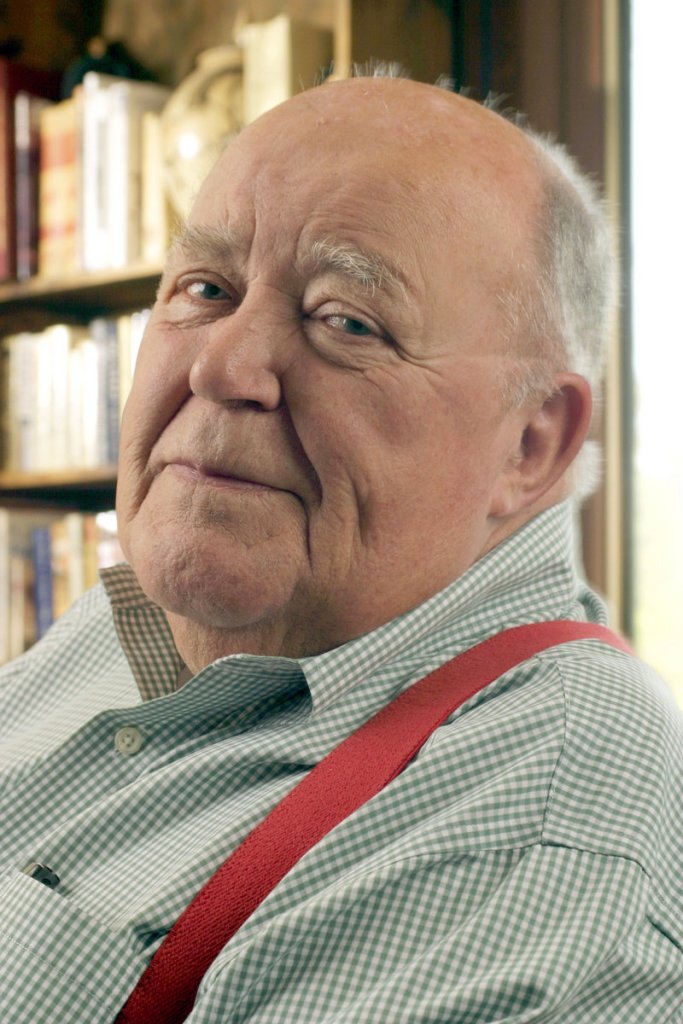WASHINGTON – Jack W. Germond, the portly, cantankerous columnist and pundit who covered 10 presidential elections and sparred with colleagues on TV’s “The McLaughlin Group,” has died. He was 85.
Germond died Wednesday morning. He had recently finished his first novel, “A Small Story for Page Three,” about a reporter investigating political intrigue, being published Friday.
“He went peacefully and quickly after just completing this novel, a tale he had pondered while writing columns, campaign books, a memoir and covering our politics and politicians,” his wife, Alice Germond, said in a note to his colleagues. She said Germond “was fortunate to spend his life working at a job he would have done for free during some halcyon times in the newspaper business.”
With Jules Witcover, Germond co-wrote five syndicated columns a week for nearly 25 years, most of that time spent at The (Baltimore) Evening Sun, until it went out of business, and then The (Baltimore) Sun.
He was in many ways emblematic of his generation of Washington journalists: He was friendly with the politicians he covered, and he cultivated relationships with political insiders during late-night poker games.
Germond and Witcover were among the “Boys on the Bus” chronicled in Timothy Crouse’s seminal account of reporters in the 1972 presidential election.
Later in his career, Germond became arguably the best known of the “Boys,” thanks to his irascible appearances on “The McLaughlin Group,” where he offered a liberal alternative to conservative host John McLaughlin and fellow panelist Robert D. Novak.
Their dustups were parodied on “Saturday Night Live,” with Chris Farley as Germond and Dana Carvey as a histrionic McLaughlin.
He also appeared regularly on TV’s “Inside Washington,” and was a political analyst for NBC and CNN.
Germond and Witcover’s column, “Politics Today,” appeared in about 140 newspapers at its peak.
Germond retired from writing columns after the 2000 presidential election, disgusted with politics.
“I really found this campaign odious. I just couldn’t get up for it,” Germond told The Washington Post. “The quality of the candidates and the campaign, I just found the whole thing second-rate. I didn’t know how to explain to my granddaughter that I was spending my dotage writing about Al Gore and George W. Bush.”
He and others in his generation typically generated leads during after-hours, off-the-record chats over drinks — sometimes with the candidates. As campaigns became scripted, the candidates more insulated and paranoid about gaffes, Germond bemoaned the lost opportunities to see beyond their public personas.
He was baffled by the younger generation of political reporters and their more subdued style.
“Journalism was a great way to make a living. It was fun,” Germond told People magazine in 2001. “Nowadays, reporters drink white wine and eat salads. They go to their rooms, transcribe their notes and go to the gym. We never did that.”
Germond was born in 1928, in Newton, Mass. His father was an engineer who worked in the housing business, and the family moved frequently.
“I went through 11 different schools in 12 years of public school,” Germond said on NBC’s “Meet the Press” in 2005. “It made me very detached. It hardens you up a little bit.”
He served in the Army from 1946-47, then earned journalism and history degrees from the University of Missouri in 1951.
Copy the Story LinkSend questions/comments to the editors.



Success. Please wait for the page to reload. If the page does not reload within 5 seconds, please refresh the page.
Enter your email and password to access comments.
Hi, to comment on stories you must . This profile is in addition to your subscription and website login.
Already have a commenting profile? .
Invalid username/password.
Please check your email to confirm and complete your registration.
Only subscribers are eligible to post comments. Please subscribe or login first for digital access. Here’s why.
Use the form below to reset your password. When you've submitted your account email, we will send an email with a reset code.